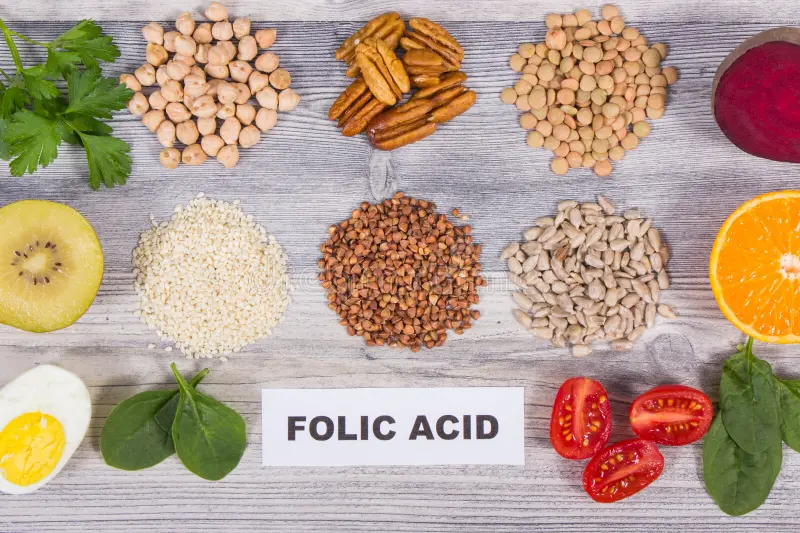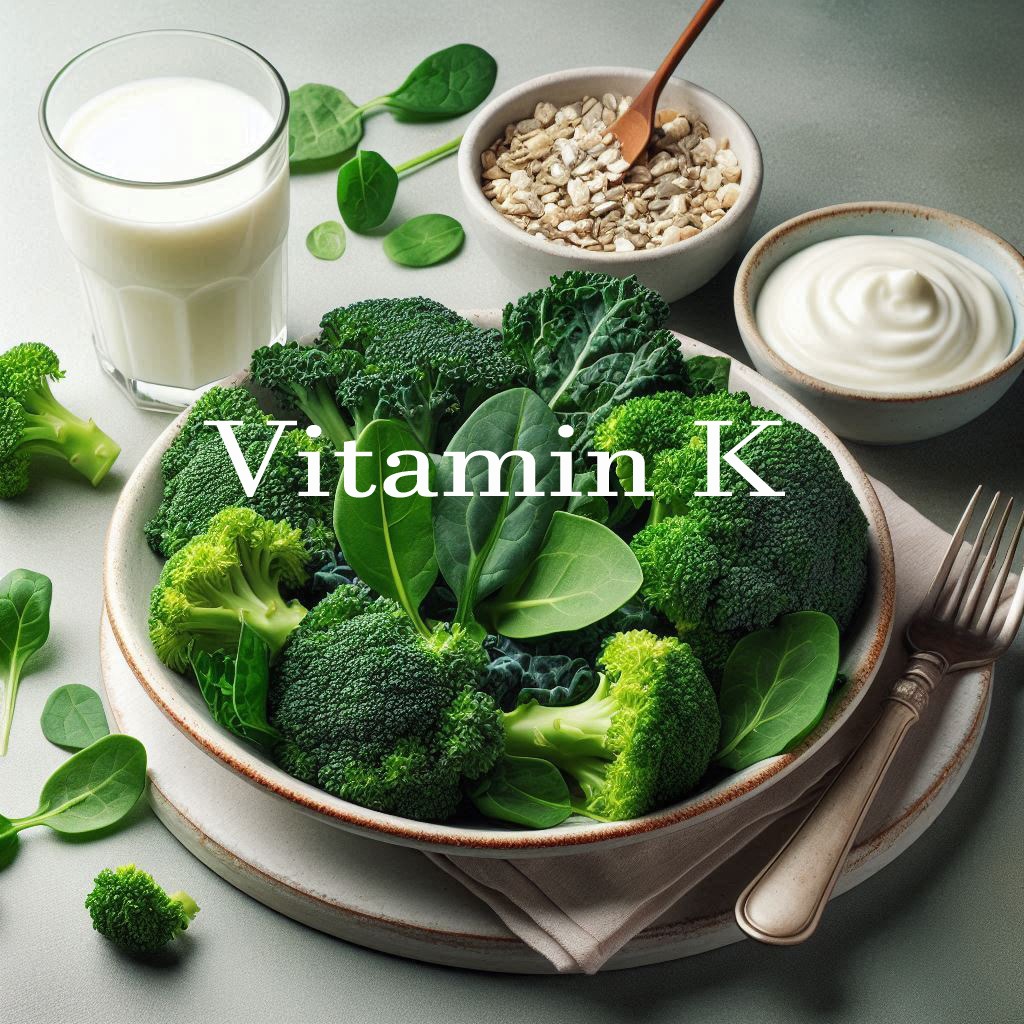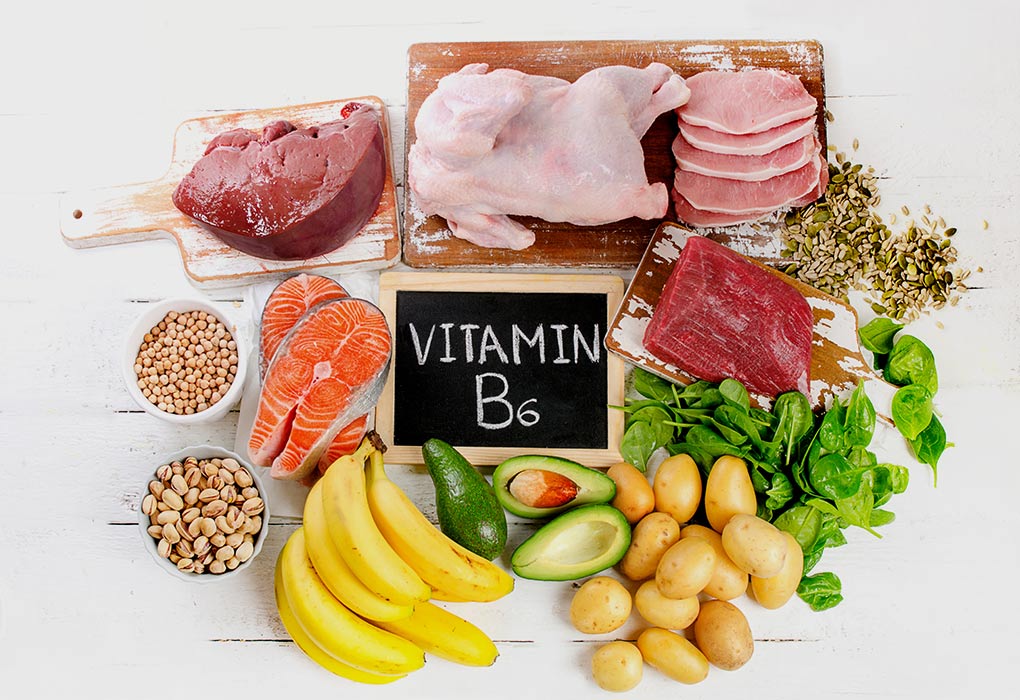The Health Benefits, Properties and Symptoms of Deficiency of Folic Acid (Vitamin B9)
Folic acid (Vitamin B9) is essential for overall health, playing a crucial role in DNA synthesis, red blood cell formation, and cell growth. It helps prevent birth defects, supports heart health, and enhances mental well-being. Discover the numerous benefits of this vital B-vitamin in our comprehensive guide.
Health benefits of Folic Acid (Vitamin B9)
- Prevents Birth Defects: Essential during early pregnancy to prevent neural tube defects in the developing fetus.
- Red Blood Cell Formation: Helps in the production of healthy red blood cells, preventing anaemia.
- Supports Heart Health: Lowers homocysteine levels, reducing the risk of heart disease.
- Improves Mental Health: This may enhance the effectiveness of antidepressants and improve symptoms of depression.
- Aids in DNA Synthesis: Crucial for the formation and repair of DNA and RNA.
- Promotes Cell Growth: Necessary for the growth and division of cells, supporting overall body development.
- Boosts Brain Function: Supports cognitive function and may reduce the risk of cognitive decline.
- Enhances Skin Health: Contributes to the health of skin, hair, and nails by supporting cell regeneration.
- Reduces Cancer Risk: This may help lower the risk of certain cancers by maintaining healthy cell division.
- Supports Immune Function: Plays a role in the proper functioning of the immune system
Chemical Properties of Folic Acid
Folic acid (C₁₉H₁₉N₇O₆) is a synthetic form of the naturally occurring folate (vitamin B9). Here are some key chemical properties:
Chemical Properties:
- Molecular Weight: 441.40 g/mol.
- Solubility: Slightly soluble in water in its acid form, but its salts are more soluble. It is insoluble in ethanol and less polar organic solvents.
- Stability:
- Solid Form: Relatively stable.
- Solution: Sensitive to light, heat, and extreme pH changes. It can rapidly decompose in aqueous solutions when exposed to light.
- Oxidation and Reduction: Folic acid is a redox-active molecule and can undergo oxidation and reduction reactions.
- Decomposition: Decomposes to form compounds such as pterin-6-aldehyde, H₂ pterin, pterin, and xanthopterin.
- Chelation: Forms chelates with metals such as iron, copper, and zinc.
- Reactivity: Can undergo various chemical reactions, including hydrolysis, condensation, and reduction.
These properties make folic acid a versatile compound in both biological and chemical contexts.
Sources of Folic Acid
Folic acid, also known as vitamin B9, can be found in a variety of natural and fortified foods. Here are some excellent sources:
Natural Sources:
- Leafy Green Vegetables: Spinach, kale, and turnip greens are rich in folate.
- Legumes: Lentils, chickpeas, black beans, and fava beans are excellent sources.
- Fruits: Oranges, lemons, bananas, melons, and strawberries contain good amounts of folate.
- Nuts and Seeds: Sunflower seeds and peanuts are high in folate.
- Vegetables: Asparagus, broccoli, and Brussels sprouts are also good sources.
- Organ Meats: Chicken liver is particularly high in folate.
- Sea Vegetables: Seaweed (wakame) is a notable source.
Fortified Foods:
- Breakfast Cereals: Many cereals are fortified with folic acid.
- Breads and Pastas: Enriched flours used in breads and pastas often contain added folic acid.
- Rice: Some brands of rice are fortified with folic acid.
Supplements:
- Multivitamins: Many multivitamins contain folic acid, often in doses of 400-800 mcg.
- Prenatal Vitamins: Specifically formulated to include higher amounts of folic acid to support pregnancy.
Including a variety of these foods in your diet can help ensure you get enough folic acid.
Symptoms of Deficiency of Folic Acid in the Body
Folic acid deficiency can lead to various health issues due to its crucial role in cell growth and division. Here are some key points about folic acid deficiency:
Symptoms:
- Fatigue: Feeling unusually tired or weak.
- Mouth Sores: Painful sores or ulcers in the mouth.
- Grey Hair: Premature greying of hair.
- Swollen Tongue: Inflammation or swelling of the tongue.
- Growth Problems: In children, it can lead to poor growth.
- Peripheral Neuropathy: Numbness or tingling in the hands and feet due to nerve damage.
- Anaemia: Symptoms include persistent fatigue, weakness, lethargy, pale skin, and shortness of breath.
Causes:
- Diet: Low intake of folate-rich foods like leafy greens, citrus fruits, and fortified cereals.
- Medical Conditions: Conditions like celiac disease or Crohn’s disease that affect nutrient absorption.
- Medications: Certain medications can interfere with folate metabolism.
- Increased Demand: Pregnancy and other conditions that increase the body’s need for folate.
Complications:
- Birth Defects: Increased risk of neural tube defects in babies born to mothers with folate deficiency.
- Anaemia: This can lead to megaloblastic anaemia, characterized by large, abnormal red blood cells.
- Neurological Issues: Potential for cognitive decline and other neurological problems2.
Prevention and Treatment:
- Diet: Eating a balanced diet rich in folate-containing foods.
- Supplements: Taking folic acid supplements, is especially important for pregnant women.
- Medical Consultation: Regular check-ups and blood tests to monitor folate levels
External links
benefits of folic acid
properties of folic acid









Review Vitamin B9 (Folic Acid).
You must be logged in to post a review.